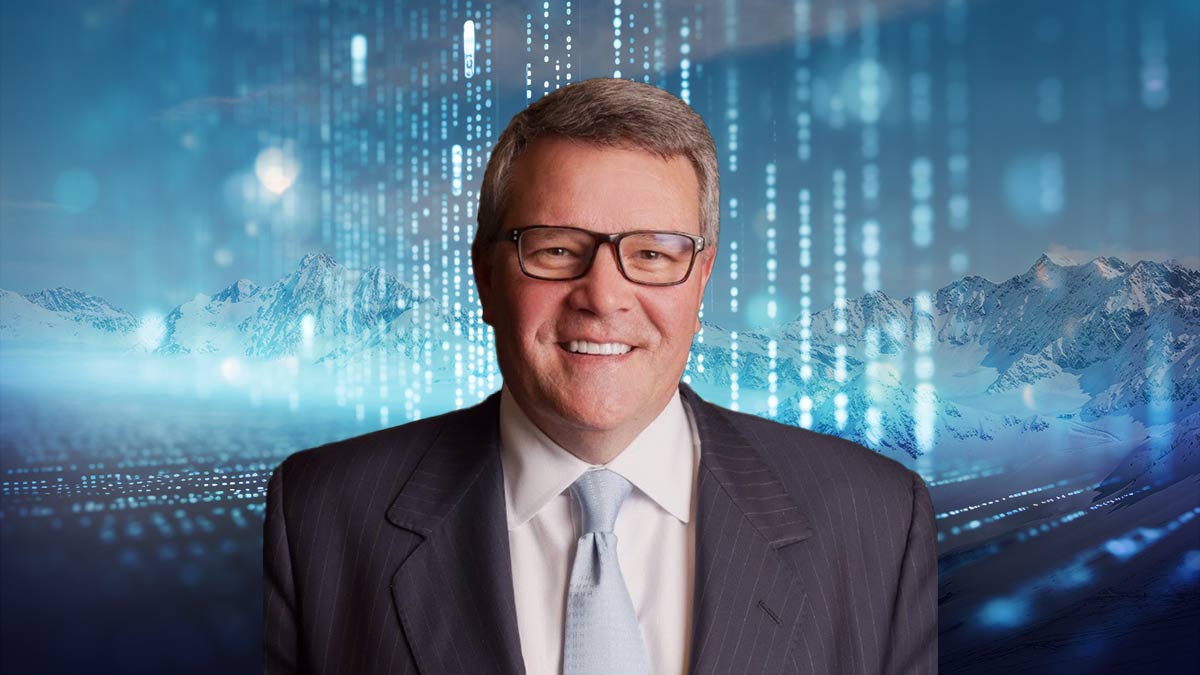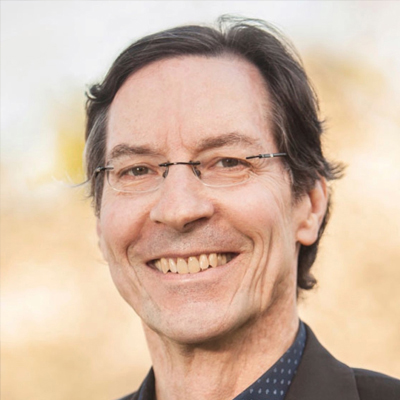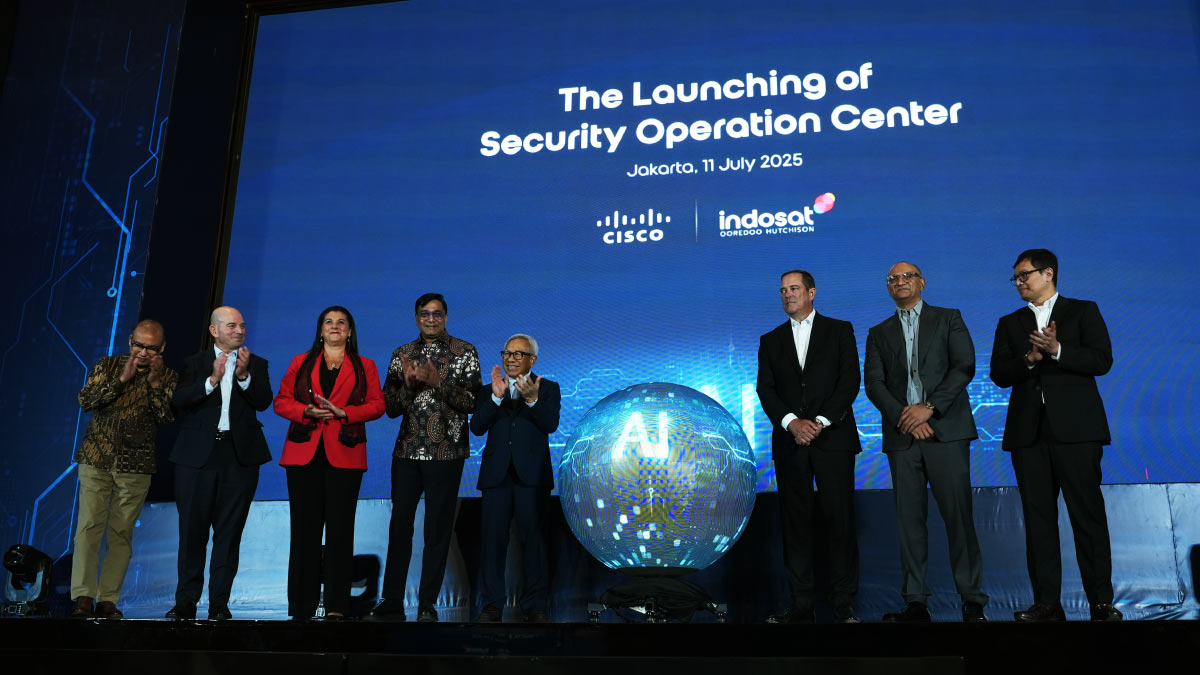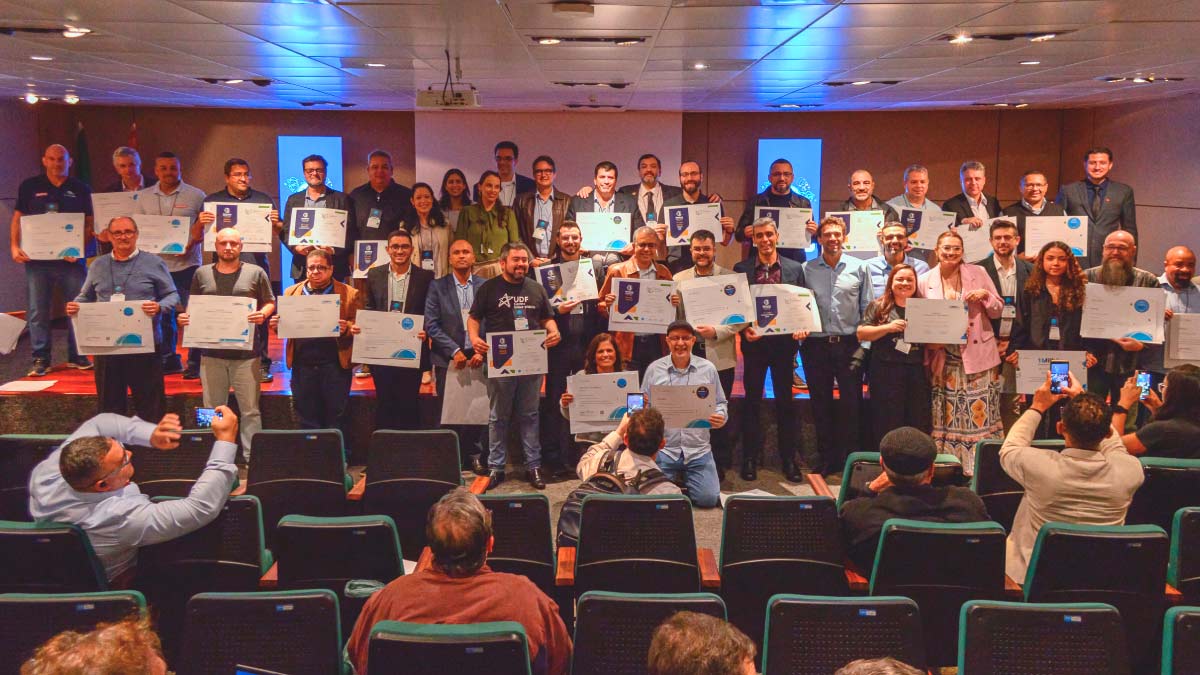The World Economic Forum’s annual meeting at Davos, Switzerland, is the premier event for brainstorming solutions to the planet’s most critical challenges.
And given WEF’s emphasis on public/private-sector cooperation, positive tech solutions, and promotion of economic growth, Cisco has long been a natural fit for the event.
So, just prior to his departure for Davos, we spoke with Dr. Guy Diedrich, Cisco’s SVP and global innovation officer, for his thoughts on some of the major issues that will be tackled at Davos this week — everything from artificial intelligence and cyberthreats to sustainability and education.
Diedrich also leads Cisco’s Country Digital Acceleration (CDA) program, which is working with governments in 50 countries to drive digital transformation; and the Cisco Networking Academy, which has empowered more than 20 million people around the world with IT, security, and other tech skills. So, he had plenty to say about Cisco’s commitment to helping solve our biggest global problems.
Thank you, Guy! I’m sure you’re excited about attending Davos once again. How do the missions of WEF and CDA align?
The missions of WEF and CDA align beautifully. CDA was put in place to help countries execute on their national digital agendas. That means bringing together the best and the brightest from inside that country and having them address and solve some of those countries’ greatest challenges. That's on a micro, national level. WEF does it globally. It brings together the best and the brightest to address the challenges that the world is facing.
AI looms large at WEF this year.
Yes, Ai is a massive area of interest. Because the pace of AI innovation is happening so quickly, we're going to need to be ethical stewards of that technology. And WEF is the perfect environment in which to have those discussions.
Cisco is a leader in innovative uses of AI — and in setting responsible guidelines for its usage. I’m sure there will be a lot to talk about this week.
Within CDA alone, we’re investing in proofs of concept utilizing AI around the world in everything from smart cities to health care to education and beyond. But one of the things that we realized early on at Cisco is you’ve got to have diversity around the table as you’re developing AI. Because if you don't have a diverse population creating these things, then AI will learn from that and very efficiently spread the bias. So, you’ve got to mitigate the risk associated with bias being embedded in AI from the start.
How can Cisco Networking Academy, which you lead, address the problem of bias in AI?
If we don't get young people from diverse populations excited about technology and STEM — and to become participants around that table — we’re never going to meet the diversity goal for AI. And that's where Networking Academy is so important, in providing access to education and training for those in underserved populations — and to help ensure that the future of Ai is a positive one.
Security is another huge topic at WEF. How does the global tech-skills gap add to security challenges? And how is Cisco Networking Academy helping?
We’re seeing a massive skills gap around the world, particularly in the area of security. There's some four and a half million open security jobs today, and that number is only growing. So, through programs like the Networking Academy and Skills for All we’re able to train up that next generation of cybersecurity professionals. To be able to help protect the world.
Sustainability is another critical issue — and a huge commitment at Cisco. How are you and your teams contributing to solving the climate crisis on a global level?
Cisco’s Country Digital Acceleration Program is in 50 countries around the world. That gives us a very privileged point of view on trends and what's important to some of the largest governments in the world, representing the vast majority of the world's GDP and population. And what we've seen just in the last five years is a complete shift. If you had asked me how many world leaders that we interact with around the world had sustainability as a top-five priority five years ago, the answer would have been not one. Today, all 50 countries have sustainability as a top priority. And they're investing in it. We've stood up 30 sustainability projects just in the last eighteen months through the CDA program, and we're going to see more and more moving forward.
Davos is all about partnerships. And you and your teams are announcing a unique one this week with OECD, the Organization for Economic Co-operation and Development. Can you share some of the excitement around this new research initiative?
Absolutely. One of the things that happens with technological transformation is that we all experience the wow factor. What we tend not to do is to discuss or explore the unintended consequences of technological evolution and revolution. So, we’re working with the OECD Wise Centre, which stands for Well-being, Inclusion, Sustainability, and Equal Opportunity. Together, we're building a global knowledge hub to connect with people around the world to learn about their experiences with digital technology and the influence of digital transformation on people's lives and well-being.
The Digital Well-being Hub will present research and evidence that digitization can have a positive influence on populations. But it will also acknowledge and study the negative influences, the challenges to well-being. What that allows us to do then is to take that data, take that evidence and make it actionable — so that we become better stewards of technology moving forward. And use it to improve the well-being of the citizens around the world whom we serve. It's all part of our larger initiative of positively impacting one-billion lives. We've already surpassed that billion, and we're well on to the next billion.
What are some 2024 accomplishments that you would most hope to highlight at next year’s meeting in Davos?
Our EDGE Centers are CDA investments that we’re standing up primarily in sub-Saharan Africa. And the goal there is to bring together academia, government, and industry into a single innovation environment — to let them work together to collaborate and co-innovate. But the centers also support those that want to enter the networking space, the security space, AI, or other professional endeavors. In 2024, I would love to see us continue to expand the EDGE Centers around the world, because they are targeted to the most vulnerable those are targeted to serving the underserved.
And of course, connecting more of the unconnected is so critical. We're in the digital age now, and we're about to probably transition into what may very well be the quantum age. But in this stage right now there are no excuses for having people unconnected. Cisco believes that being connected is a fundamental human right. Because if we don’t connect the world, we are denying whole populations of the other fundamental human rights that we believe in: access to quality healthcare, access to education, access to opportunity.
So, in 2024, what I would most like to see is for Cisco and for the rest of the world to continue to connect the unconnected — and give everyone access to all of the rights and privileges that the rest of us enjoy.





